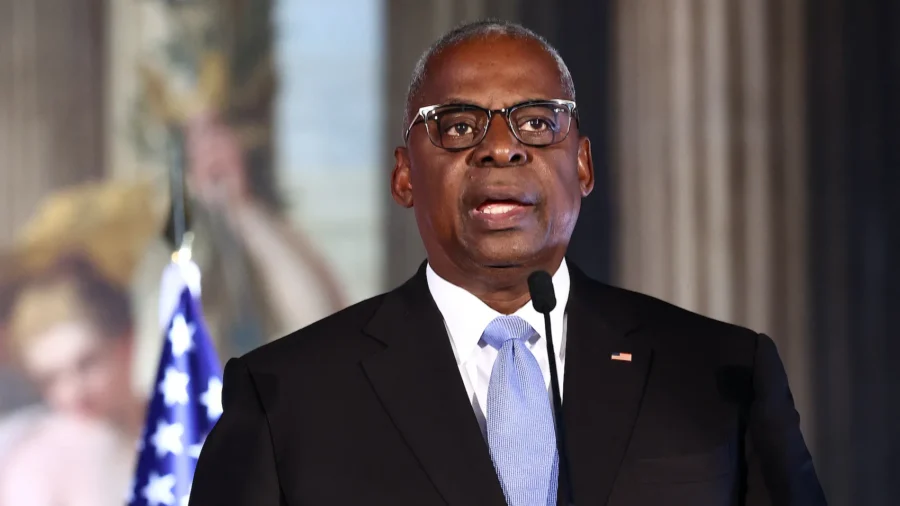A military appeals court has denied Defense Secretary Lloyd Austin’s attempt to void plea agreements for Khalid Sheikh Mohammed and other defendants accused of orchestrating the Sept. 11, 2001, attacks.
The decision, issued on Dec. 30 by the U.S. Court of Military Commission Review (CMCR), found that the government’s petition for extraordinary relief failed to meet key legal standards.
The Pentagon chief had sought to nullify plea agreements reached with Mohammed and two co-defendants—Walid bin Attash and Mustafa al Hawsawi—arguing that sparing the defendants the death penalty undermined justice for one of the deadliest terrorist attacks in U.S. history. The agreements, finalized over the summer after years of negotiation, would require guilty pleas from the defendants in exchange for a lesser punishment of life sentences.
The military appeals court’s Dec. 30 ruling addresses Austin’s petition seeking a writ of mandamus and prohibition. It found that the government satisfied the first part of the Cheney v. U.S. District Court test, determining that the military judge’s decision to vacate Austin’s memorandum rejecting the plea deals constituted a “clear abuse of discretion.”
However, the court found that the government failed the second Cheney criterion, which requires petitioners to demonstrate they lack an adequate alternative means to obtain relief. The CMCR noted that the government could address its objections through the normal appeals process, making extraordinary relief unnecessary. The court therefore did not consider the third Cheney test, which evaluates whether a writ is appropriate under the circumstances.
The ruling effectively reinstates the plea deals, which Austin decided to strike down earlier this year. The Pentagon chief had intervened after the agreements gained approval from Guantanamo Bay’s top military authority, citing the gravity of the 9/11 attacks and asserting his prerogative to influence decisions involving the death penalty.
Defense attorneys argued that Austin’s intervention amounted to unlawful interference in the military commissions process. The military judge presiding over the 9/11 case, Air Force Col. Matthew McCall, agreed, prompting the government’s appeal to the CMCR.
Shortly after McCall revived the plea agreements, Austin remarked during a press briefing that he viewed the matter “very important” and stood by his decision void the plea deals, hinting at further legal attempts to nullify the agreements.
Austin now faces a decision on whether to escalate the matter to the U.S. Court of Appeals for the District of Columbia Circuit.
A Pentagon spokesperson told The Epoch Times in an emailed statement that the Department of Defense (DOD) is reviewing the decision and considering its next steps.
“In conjunction with the Department of Justice, the DOD is reviewing the ruling and considering our options,” the spokesperson said. “On December 31, the Government filed a motion with the Military Commission requesting a continuance of the entry of pleas until January 27 to provide the Government the opportunity to determine whether to pursue relief in the DC Circuit.”
This latest ruling revives the possibility of resolving the long-running legal proceedings against the defendants, who face charges including terrorism, conspiracy, and murder in violation of the law of war. The effort to bring the men accused of killing nearly 3,000 people on Sept. 11, 2001 to justice has lasted for over a decade.
The pretrial hearings have been fraught with legal and procedural challenges, including debates over the admissibility of evidence the defendants allege was obtained through torture during their time in CIA custody.
The 9/11 attacks rank among the deadliest and most devastating in U.S. history. Al-Qaeda hijackers seized four passenger planes, crashing them into the World Trade Center, the Pentagon, and a field in Pennsylvania.

